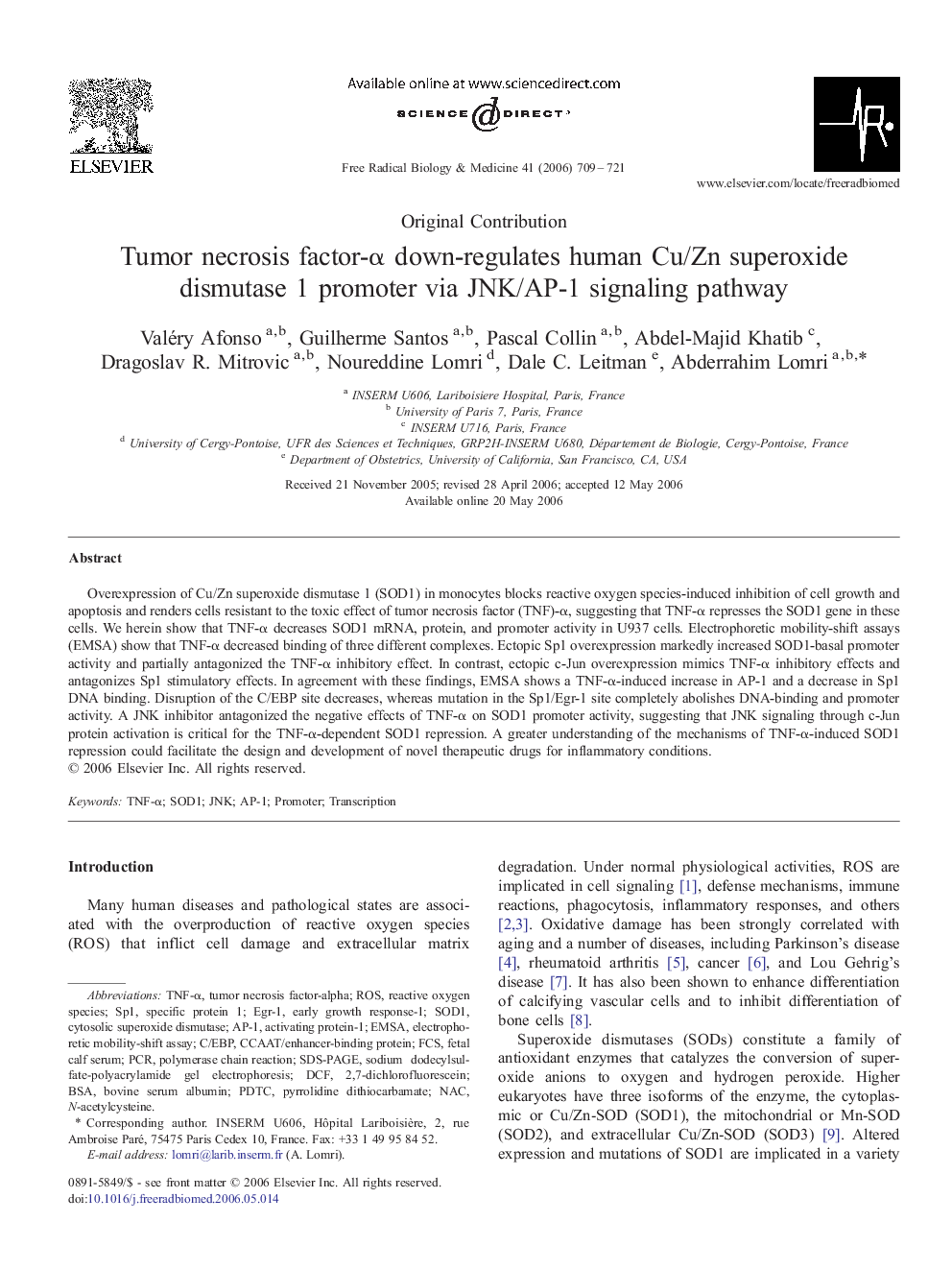| Article ID | Journal | Published Year | Pages | File Type |
|---|---|---|---|---|
| 1912036 | Free Radical Biology and Medicine | 2006 | 13 Pages |
Overexpression of Cu/Zn superoxide dismutase 1 (SOD1) in monocytes blocks reactive oxygen species-induced inhibition of cell growth and apoptosis and renders cells resistant to the toxic effect of tumor necrosis factor (TNF)-α, suggesting that TNF-α represses the SOD1 gene in these cells. We herein show that TNF-α decreases SOD1 mRNA, protein, and promoter activity in U937 cells. Electrophoretic mobility-shift assays (EMSA) show that TNF-α decreased binding of three different complexes. Ectopic Sp1 overexpression markedly increased SOD1-basal promoter activity and partially antagonized the TNF-α inhibitory effect. In contrast, ectopic c-Jun overexpression mimics TNF-α inhibitory effects and antagonizes Sp1 stimulatory effects. In agreement with these findings, EMSA shows a TNF-α-induced increase in AP-1 and a decrease in Sp1 DNA binding. Disruption of the C/EBP site decreases, whereas mutation in the Sp1/Egr-1 site completely abolishes DNA-binding and promoter activity. A JNK inhibitor antagonized the negative effects of TNF-α on SOD1 promoter activity, suggesting that JNK signaling through c-Jun protein activation is critical for the TNF-α-dependent SOD1 repression. A greater understanding of the mechanisms of TNF-α-induced SOD1 repression could facilitate the design and development of novel therapeutic drugs for inflammatory conditions.
